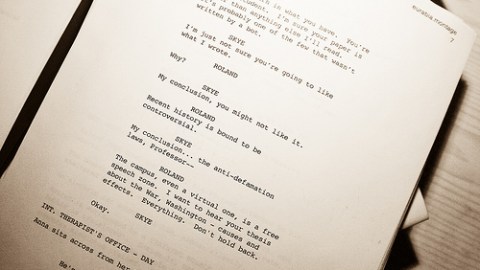A Screenplay Guru on the Importance of Craft

Many an aspiring screenwriter has pored over Robert McKee’s book “Story: Substance, Structure, Style and The Principles of Screenwriting,” trying to suss out the creative secrets that will result in their words ending up on the silver screen. In his Big Think interview, the creator of the “Story Seminar” says that all good storytelling is about conflict, and that the level of conflict a writer is interested in should determine the medium he writes for. He says that stories play a vital part in our lives, perhaps now more than ever—and the job of the writer to make sense out of the chaos in the world around us.
McKee himself hasn’t had a feature film produced (though he’s had 12 scripts optioned, some several times over), but his students have gone on to win 32 Academy Awards and 158 Emmy Awards. He says it’s impossible to teach people “how” to write, so instead he aims to instill the idea of a writer’s craft in his students—raising the right questions instead of giving answers, and teaching them to produce work that is original rather than just following the latest Hollywood trends. And he says the most destructive screenwriting advice a teacher can give is to tell a writer that certain plot points need to happen on particular pages.
In Charlie Kaufman’s film “Adaptation,” McKee himself was a character—a blustery screenwriting guru who chews out the main character for wanting to write a film where nothing happens. McKee says he was initially wary of being portrayed in the film, but that he eventually “loved” seeing himself in the final product.
He also thinks that aspiring executives and politicians could benefit from learning how to write a screenplay. Business is all about persuasion, says McKee, and the best way to persuade someone is to put your pitch in the context of a story.





